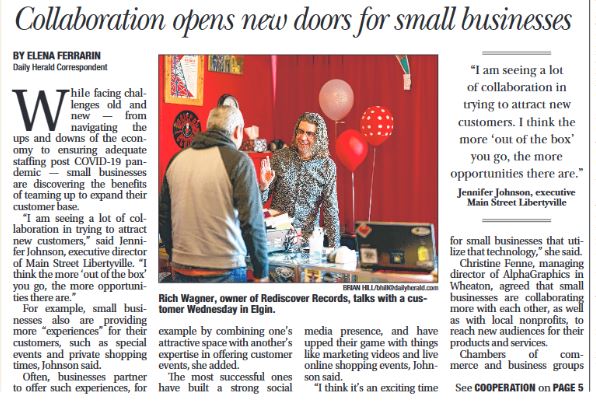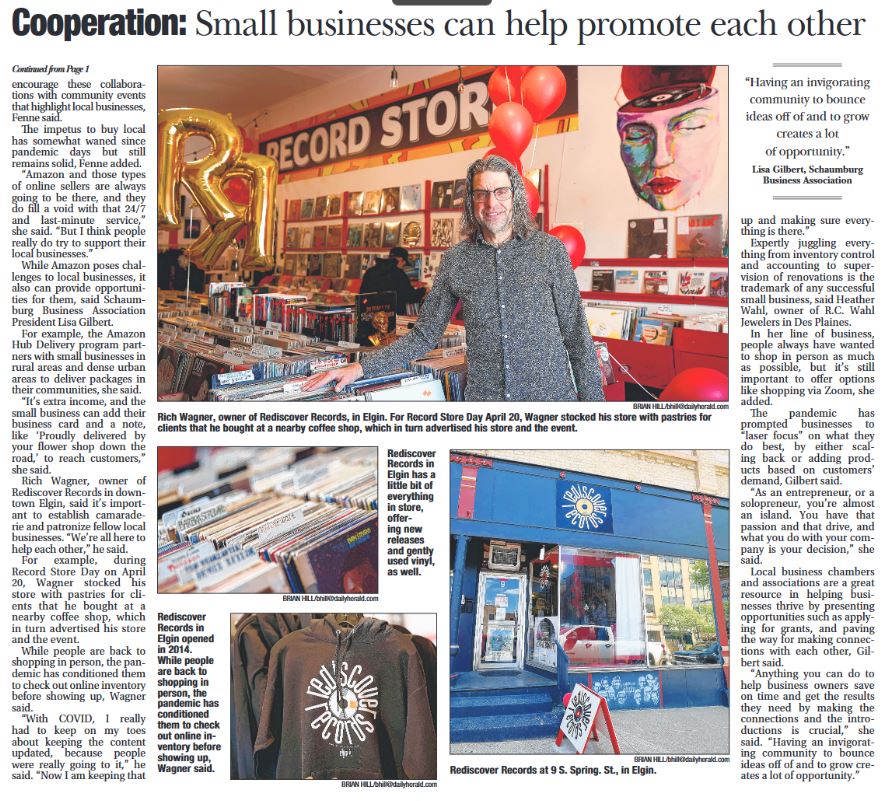Small Business Week is a time to celebrate the spirit of entrepreneurship and the vital role that small businesses play in our communities. Beyond the individual hustle and grind, there's a powerful force that often goes unnoticed – collaboration among small businesses. In this blog post, we'll explore why collaboration is so essential for small businesses and how it can be a game-changer in driving success and sustainability.
1. Strength in Community:
Small businesses are the heartbeat of local communities, and collaboration strengthens this interconnected ecosystem. By collaborating with neighboring businesses, small enterprises can create a supportive network that fosters growth, shares resources, and promotes collective prosperity. Whether it's organizing joint events, cross-promoting products or services, or simply offering mutual support, collaboration strengthens community bonds and enhances the overall business environment.
2. Amplified Visibility and Reach:
Collaboration offers small businesses a platform to amplify their visibility and reach. By partnering with complementary businesses, they can tap into each other's customer bases and expand their reach beyond their immediate networks. For example, a boutique clothing store might collaborate with a local jewelry maker for a themed fashion event, attracting customers interested in both fashion and accessories. Through collaborative marketing efforts, businesses can leverage each other's strengths to attract new customers and increase brand awareness.
3. Shared Resources and Expertise:
Small businesses often face resource constraints, whether it's financial limitations, limited manpower, or expertise gaps. Collaboration enables them to overcome these challenges by pooling resources and sharing expertise. For instance, small businesses can collaborate on joint purchasing to negotiate better deals with suppliers, share office space or equipment to reduce overhead costs, or even exchange skills through informal mentorship arrangements. By leveraging each other's strengths, small businesses can operate more efficiently and effectively compete with larger rivals.
4. Innovation and Creativity:
Collaboration breeds innovation and creativity by bringing together diverse perspectives and skill sets. Small businesses can collaborate on projects, initiatives, or even product development, sparking new ideas and approaches that may not have emerged in isolation. For example, a group of small businesses in the food industry might collaborate to create a themed culinary event or develop a new product line through joint brainstorming sessions. Through collaboration, small businesses can tap into their collective creativity to stay ahead of the curve and meet evolving customer needs.
Conclusion:
As we celebrate Small Business Week, let's recognize the transformative power of collaboration among small businesses. By fostering community, amplifying visibility, sharing resources, and nurturing creativity, collaboration unlocks opportunities for growth, resilience, and sustainability. Whether it's forging partnerships with neighboring businesses, participating in industry alliances, or joining collaborative networks, small businesses can achieve more together than they ever could alone. Here's to the spirit of collaboration – may it continue to drive the success and vitality of small businesses everywhere.







 RSS Feed
RSS Feed


